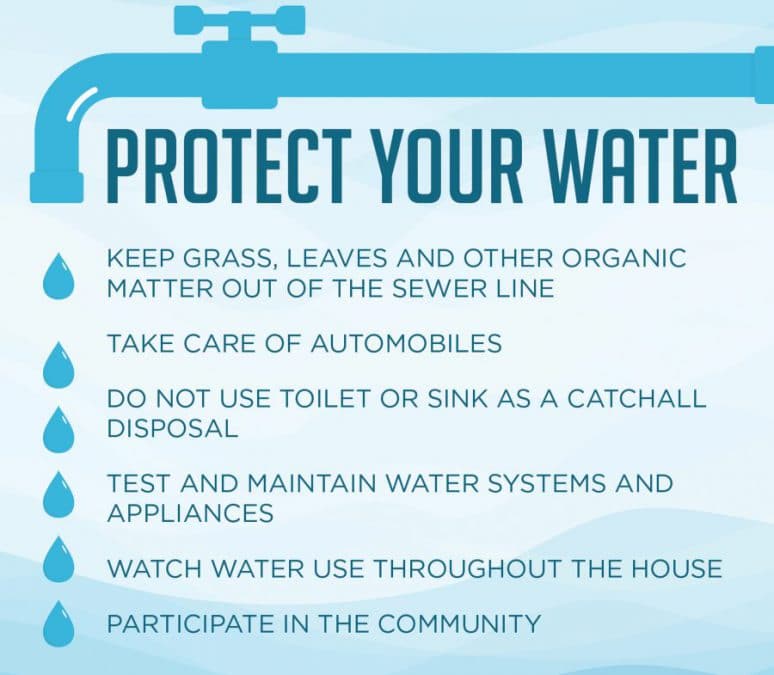Access to clean, affordable water affects everyone, whether provided through a municipal line or from a groundwater well. Citizen Potawatomi Nation manages Pottawatomie County Rural Water District 3 in Oklahoma, which provides over 1,000 rural Oklahomans with access to clean water, including the towns of Asher, Wanette and Dale.
Since October 2008, the district’s customer base has increased from 530 members to more than 1,200. Richard Kunze, director of Public Works and Utilities, said it is some of the highest-quality water in the state in testing for both purity and chemical composition.

“Rural water districts are a blessing to all of those people because not everybody has sufficient groundwater or groundwater of good enough quality to really be functional,” Kunze said.
However, ensuring future generations have access to safe water supplies requires everyone’s participation. Here are a few simple rules and everyday actions to help improve and protect the availability of one of life’s essential substances:
- Keep grass, leaves and other organic matter out of the sewer line. “The (U.S. Environmental Protection Agency) has determined that there are chemical reactions between the organics and chlorine that create what are commonly called disinfection by-products,” Kunze said. Those include trihalomethanes (THMs) and haloacetic acids (HAA5s), which are possible carcinogens. Instead of allowing debris to enter waterways, sweep driveway contents back into the lawn and bag leaves or utilize them as bulking agents in compost instead.
- Take care of automobiles. Rain often washes away leaking car fluids, and using an automotive galvanized drip pan while changing oil at home contains them. Keeping vehicles in top condition prevents those harmful by-products from entering water supplies. The Natural Resources Defense Council also suggests using a commercial car wash that drains the dirty water into a sewer system to treat it instead of hosing down a car at home.
- Do not use toilet or sink as a catchall disposal. That includes feminine hygiene products, baby wipes, excess household cleaning supplies and more. The American Water Works Association advises wiping fats, oils and grease off pots and pans before washing them with a grease-fighting soap. When considering prescription drugs, follow the U.S. Food and Drug Administration’s rules for disposal at cpn.news/FDArules.
- Test and maintain water systems and appliances. Lack of regular maintenance can cause hot water tank and pipe failure. Kunze encourages testing water filtration and dispersal systems frequently — including faucet aerators, which often go unchanged — as well as household appliances as preventative measures.
- Watch water use throughout the house. Daily actions including taking shorter showers, running dishwashers and laundry appliances at full loads, and fixing dripping faucets help decrease water consumption. Thinking about the limited amount of well water available on a daily basis during his adolescence, Kunze reminds others to turn off their faucet while brushing their teeth and shaving as well.
- Participate in the community. The EPA encourages citizens to know their community’s water quality standards, participate in public hearings involving the revision of those standards, and volunteer for programs such as the National Water Quality Monitoring Council. Find more information at cpn.news/EPAH2O.
“Mother Earth does a pretty good job of filtering the water from the surface through the ground and into what reservoirs and aquifers are available. But it can only handle so much,” Kunze said. “If you send more bad water in that direction than it can handle, then you’re going to get contamination.”
Learn more by completing the EPA’s Water Quality Standards Academy at cpn.news/WaterAcademy. Visit the Citizen Potawatomi Nation’s Office of Environmental Health at cpn.news/cpnoeh for information on their services regarding municipal and well water.
